5 interesting questions dental hygienists asked Kara RDH in November
As a a well-known and accomplished dental hygienist, Kara Vavrosky often gets asked for advice.
As a well-known and accomplished dental hygienist, Kara Vavrosky often gets asked for advice.
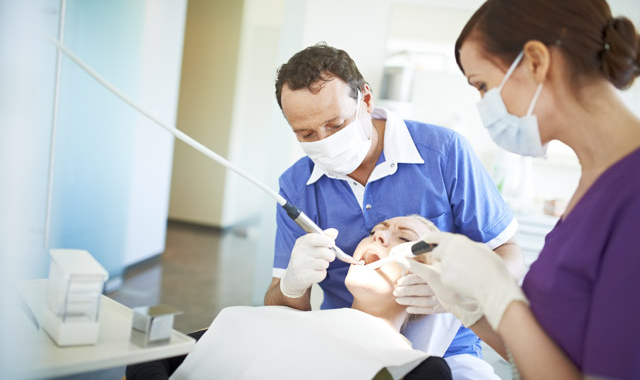
She runs the popular Facebook page Dental Hygiene with Kara RDH and is also the founder of dentalhygieneanswers.com, a question-and-answer platform for dental hygienists.
Here, we provide five of the most interesting questions hygienists ask Vavrosky, along with her answers.
Continue to the next page to view our slideshow of these questions and answers.

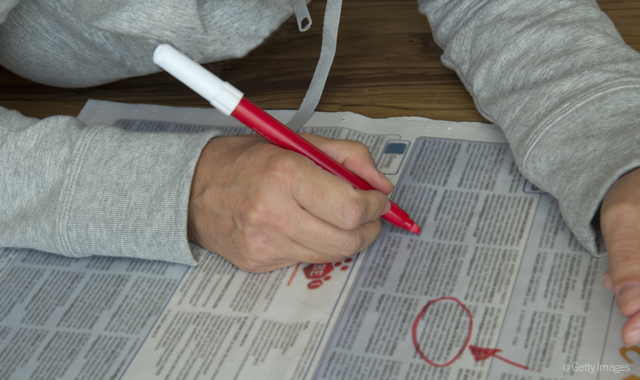


How do I look for a new job when I am currently working full-time?
I’ve been at the same office for five years and need a change. How am I supposed to interview and/or do a working interview when most offices in my area work Monday-Thursday just like my current office does? Any advice would be greatly appreciated! Thanks!
This is a very difficult dilemma because it is hard to interview for a job when you already have a job you need to be at. First, count your lucky stars that you are even in the position where you have a job. While it may not be the perfect job, I can’t count how many messages I get from other hygienists looking for advice on how to find a job because the market is so saturated right now. I would really evaluate what it is that is causing you to want to change. If there is unethical behavior or you don’t get along with the doctor or your coworkers, then I totally understand wanting a change. If you’ve just reached the five-year point where you want something new, you might want to wait until the job market improves before aggressively searching for a new job.
With all that said, if you are actively looking for a job, just explain the situation to the doctor or office manager who calls you back for an interview. They will understand the scheduling conflict, and if your resume and brief phone interview impresses them enough, they will be willing to work out a time where you can either go during lunch or after work. The bonus of currently having a job is it makes you look that much more desirable than a hygienist who has been out of practice for a period of time because he or she is currently unemployed. If you do get to the point where a working interview is requested, remind the office of your situation, which you would have previously brought up during the phone interview or regular interview, and then tell them if they are really interested in you, you will take time off from your current job.
As for how to bring this up with your current employer, there are a couple routes you can take. The first is you can call in sick the day of your working interview. I do NOT recommend taking this route because it is being dishonest and can cause your current employer to scramble for a replacement for the day. The way I recommend going about it is to talk to your office manager and tell them you need the day off for a personal matter. Don’t ask for the day off because it might appear you are flexible on the date, and he or she might ask if you can take another day off. Just let him or her know you need the day off and provide as much advance notice as you can once you have the interview scheduled. You are under no obligation to tell your current employer you are looking for a new job, and I wouldn’t mention it because it might cause some tension in the office, especially if you don’t get hired at the new place.
Don’t forget there are a ton of unemployed hygienists who would love to be in your position with a job and steady paycheck so try not to take your current job for granted even if it isn’t the most perfect situation.
I hope this helps give you some direction for your current situation, and I wish you the best of luck in your job search!
Learn why the Schick 33 sensor is right for your practice by clicking here.



When should I tell my doctor I’m pregnant?
I currently left my hygiene job due to cutting hours and lack of patients. I just got offered a new job at an office that is growing fast. I accepted the position. My dilemma is that I’m 11 weeks pregnant, and I’m freaking out to tell him. He has another hygienist who’s expecting any day now. I want to be upfront and honest. Any ideas?
Congratulations on your pregnancy! As I’m sure you know, this is a very sensitive subject, especially if you got hired to replace another pregnant hygienist. The good news is the law is on your side. Legally (although I am no lawyer), the doctor can’t fire you or rescind the offer after finding out you are pregnant. Of course, that doesn’t make it any easier to have the talk with him. If you plan on having this job for the long-term (as in coming back after you give birth), then it is important to be upfront and honest so you don’t upset the doctor and damage the professional relationship. However, I would recommend starting work first and giving it a week or two before you bring your pregnancy up (unless nitrous is used-then you may want to bring it up sooner than later due to health risks). This obviously assumes you aren’t showing, but I would not bring it up on Day One of work, and especially don’t bring it up before you start so he doesn’t make some excuse to not hire you. Hopefully, that would be a nonissue, though, because that is a doctor you probably don’t want to work for.
As for the actual conversation, after you have settled in for a week or two, just approach the doctor at a time where you think he is free, and then ask him if he has a few minutes to talk. Be direct and honest with him and tell him you are a little nervous, but you feel it important to let him know you are pregnant. If you plan on being at the office long-term, let him know that you really want to make a career at his practice and you hope the timing of your pregnancy and the job doesn’t interfere with that. I would hope the doctor is understanding and supportive. And, if it is the worse case and he isn’t, then at least you found out early on that he’s unethical and doesn’t care to support his employees.
Congratulations again on your pregnancy, and best of luck with the whole situation!
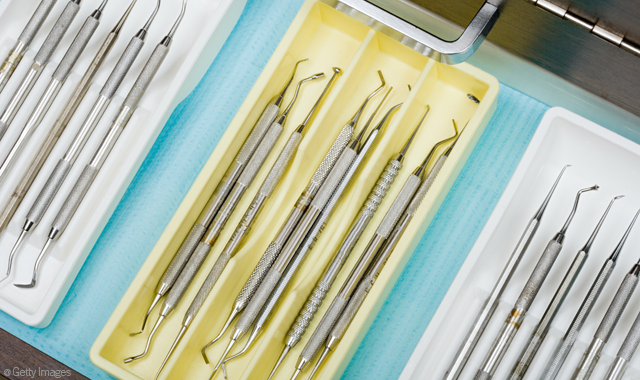


Is it possible a scaler instrument can yank out a crown or filling just by a cleaning?
Just wondering if it is possible or a really slim chance that just a scaler instrument can yank a crown, filling or older gold onlay just by a cleaning? The patient I had today refuses X-rays and says he only takes them if something’s wrong. I always explain to patients it’s easier to detect things early with X-rays. He was all upset when his onlay popped out when I was cleaning. People can really hurt you with their attitudes, and I hope I'm not alone in this. It’s aggravating and rude when your patients try to tell you how to do your job. Just wanting to vent and get some advice!
Yes, it is totally possible for restorations to come out during a cleaning. Normally, it’s not from anything you really did by scaling. It’s that the crown/amalgam/etc. was about to go anyway. I explain that exact thing to the patient and tell them it was perfect timing for it to fall out because otherwise they could have swallowed it while eating later that night or aspirated it (which could have led to an ER visit and possible surgery). Also, ask the patient how old the restoration is. It’s a chance to remind them that how long a restoration lasts depends on many factors (occlusion, home care, etc.). Some last two weeks, and some last 20 years. I say this because not a lot of dentists still do onlays so I’m guessing this was an older restoration. You said the correct thing to the patient about radiographs; many patients are uneducated on how little radiation dental radiographs actually emit and how important they are in a correct diagnosis.
As far as mean patients, you are not alone there! Unfortunately, there are people out there who allow negativity to consume them and then pass on that negativity to others. I have a tough time not taking things personally, as well, but it is important to remember that when people are mean, it is because of their own issues they are projecting on to you. It’s also important to remember a lot of people are nervous coming in, and their stress is what leads to a bad attitude. Stay pleasant and do a good job. Even if you can’t change your patient’s negativity, don’t give them the power to transfer their negative energy to you. I have to remind myself of this a lot. Know you take things personally because you truly care, which is admirable!
I hope this helps!
Advertisement
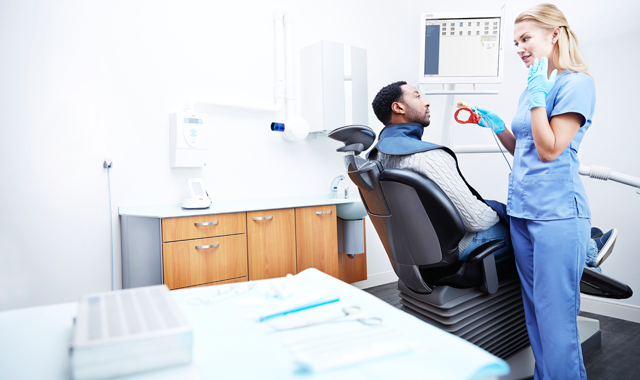


Capturing the perfect digital intraoral radiograph is no easy task! Give yourself the greatest opportunity to capture unbeatable images each time with a great sensor and easy-to-use positioning device. Schick by Sirona offers you an unbeatable sensor and two options for positioning – autoclavable and sticky tabs. These products help you be at your best and give your patients an incomparable experience.
Click here to learn more about the special rebate offer from Schick and Patterson Dental.
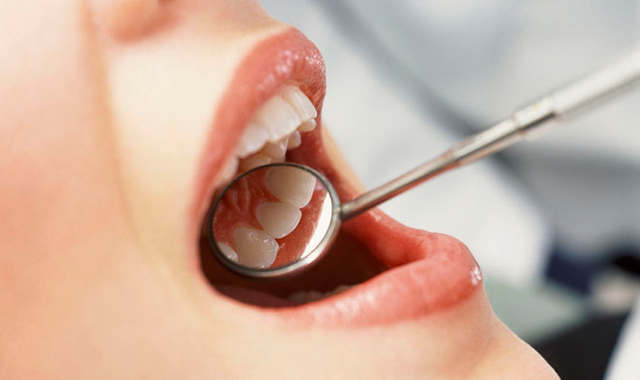


Is it possible to do full-mouth SRPs in only one hour?
I currently work for a corporation and make the majority of my compensation because of production. They would like us to perform full-mouth SRPs in one hour. This includes anesthetizing all areas needed and adjunctive therapies, such as placing Arestin, irrigation and/or laser therapy. I feel very uneasy to be in this position as it is unethical and near impossible to do a good job scaling full-mouth SRPs in one hour or so. I feel as though I am obligated to do this, or they will fire me for not hitting my goal production. I would love nothing more than to leave this office, but I am having a tough time finding a job elsewhere. Any input on what to do is very much appreciated. Thank you!
This is a tough situation to be in. First, I want to point out that anesthetizing the entire mouth is not really a good idea. It puts the patient at high risk for self-mutilation (i.e. biting through their tongue), and, depending on what anesthetic you use, you may give the patient above the maximum recommended dose (MRD) of anesthetic. This can lead to toxic reactions and overdose.
Most offices give at least one hour per quad, but I’ve seen some offices even give two hours. I agree with you that having only an hour for all four quads is unethical. My first permanent position was at an office like yours, and patient care was not a top priority. I couldn't change the doctor’s mind on that. To be frank, he was more concerned about money coming in than any patient that walked through the door. What you have to ask yourself is: Do you think you are providing treatment that’s up to the standard of care?
These patients pay for a service you provide, expecting and trusting that you are doing the best you can do. With abbreviated appointments, you do not adequate time to provide such treatment. I didn’t feel I provided treatment that was up to par in the standard of care that I believed in, which is why I moved on from that office. For most people, this kind of schedule causes major burnout and takes a toll on your body, as well.
Personally, I would make finding a new job a No. 1 priority. Beyond just applying for positions you find online, you should start networking. Attend your local ADHA meetings and study groups put on by other offices in your area and consider volunteering. Temping is also a good option to get your foot in the door at other offices. Do anything in your power to remove yourself from the unethical position you are in.
I wish you the best of luck with your situation!


Do you have any advice on standing out when looking for a job?
I am a recent grad but having a difficult time finding full-time work! I go on many interviews for both part- and full-time jobs. Many seem to go well, but then I do not hear back. I have been temping left and right, and I am ready to be in a good office three to four days a week with steady hours. What am I doing wrong? Do you have anhy advice that will help make me stand out?
You are by no means the only hygienist experiencing this problem right now. I went through the exact same dilemma when I graduated. It seems a dental office is on every other corner, but yet none of them are hiring. It’s important to understand why this is a problem as to not become discouraged with yourself. There was an increase in the number of hygiene schools so the market has become saturated with more hygienists than there are dental offices to employ them. It seems most offices will hire the more experienced applicant no matter how the interview goes. In my opinion, it’s a real bummer and their loss, but you still need a job. I have actually been the second choice for a position because they chose the candidate who lived just a few miles closer to the office than me. So don’t think you are not being hired because something is necessarily wrong with you. I know it can be tough, but it’s important to keep a positive attitude.
So, first, keep temping! You are not only adding to your clinical experience, learning a lot just by seeing the different ways practices are run. That information becomes priceless when deciding if an office is right for you. The best thing about temping is that you have the ability to walk into any office and know the exact questions and things you need to do right off the bat to get through the day. This is a huge advantage for interviews. Asking the right questions right away (how to take radiographs with the practice's software, how to pull up perio charting, how long the doctor likes for exams, etc.) makes you appear competent. That should give you confidence-the confidence an office looks for.
Second, realize the assistants (and even the front office) might actually have a huge say in who the doctor hires. Shortly after I was hired at my last office, the assistants told me the doctor asked who they liked best after all the interviews, and he hired me based on their answers. You have to impress them, too, and make their day as easy as you can. For instance, ask where things are located instead of asking for them to get it for you. That makes you look self-sufficient and polite. This seems obvious, but always remember to be polite. Also, I try my best to keep up on my own instruments and trays and help them with sterility going throughout the day (as time allows). If a patient cancels during your working interview, stock the hygiene operatory and keep yourself busy with “helpful” things. For example, if you see the slow suctions are running low, take it upon yourself to grab more. If you can be a part of their team during your working interview, it shows you aren’t a prima donna hygienist; you are a team player. It’s a culmination of these little things that will make you just that much of a better choice for their office.
Beyond making yourself stand out in an interview, try to get more interviews. For example, if there are any volunteer opportunities, jump at them. In my area, there is a dental clinic for kids that dentists and hygienists are welcome (and needed) to volunteer at. You can meet many new dentists. In my case, the clinic had a place for resumes of volunteers who needed a position. The dentists who volunteer are more likely to hire those who volunteer or whom they have volunteered with. Also, make sure you add volunteer work on your resume. It is clinical experience!
Overall, remember to keep a positive attitude and maintain your confidence. You are a trained professional, and, eventually, a job will open up. I hope some of this helps.
Learn why the Schick 33 sensor is right for your practice by clicking here.